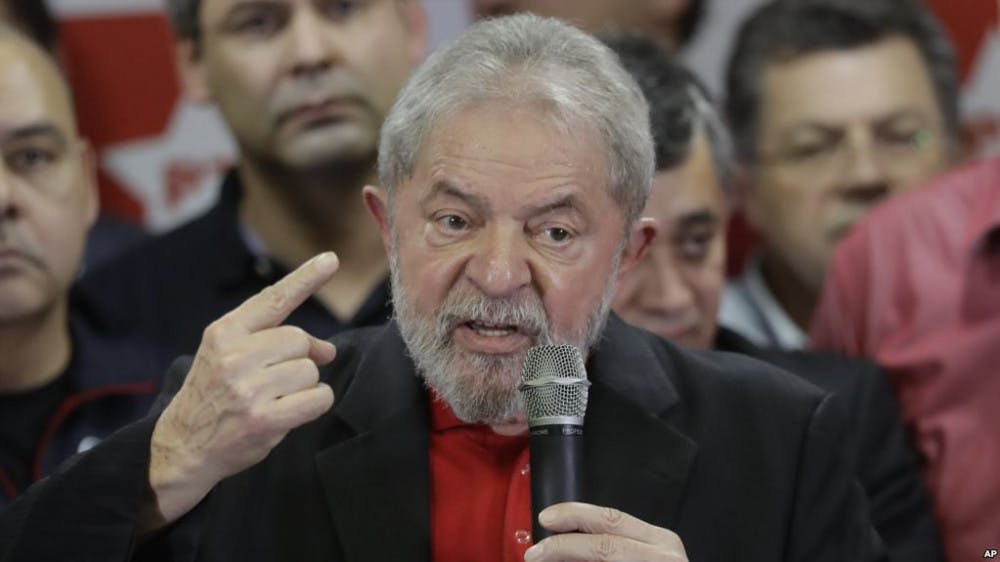By Breeda Bennett-Jones
Nation & World Editor
Former Brazilian President Luiz Inácio Lula da Silva surrendered to police on April 7 following a court order and 12-year prison sentence for crimes including corruption and money laundering, according to The New York Times.

President da Silva, known by the name “Lula,” served as president from 2003 until 2011, according to The New York Times.
Lula attempted to appeal the court conviction in order to keep his name on the ballot for the upcoming presidential elections in October, according to NBC. The justices of the Supreme Federal Tribunal denied his request on April 5 in a 6-5 vote.
Though the conviction does not prevent Lula’s name from appearing on the ballot in October, Brazil’s top electoral court is expected to deny his candidacy under the nation’s “clean slate law,” which disqualifies candidates with criminal convictions, according to NBC.
“I believe in justice and know I am not above the law,” he said, according to CNN. “If the crime I’m guilty of is bringing food and education to the poor, then I hope I’ll continue to be the biggest criminal in this country.”
Lula’s term preceded a period of economic growth and prosperity in Brazil, which allowed him to gain many loyal supporters, according to The New York Times. He has led in popularity polls to succeed current President Michel Temer, who replaced Dilma Roussef after she was impeached and removed from office in 2016.
In 2014, however, prosecutors cracked down on a government-kickback scheme known as Lava Jato, or Car Wash, which lead to more than 100 arrests and cost over $1 billion. Last July, Lula was found guilty of accepting a $1.1 million seaside apartment in exchange for giving contracts to OAS, a construction company, according to CNN.
“Decent Brazilians are celebrating this historic moment,” said João Doria, a former mayor of São Paulo, according to The New York Times. “Justice has been served.”
Lula is a founding member of Brazil’s sole socialist faction, the Worker’s Party, according to CNN. In addition to being friends with deceased Cuban leader Fidel Castro, he left office with a 90 percent approval rating.
“Lula has become a political prisoner, victim of relentless persecution by adversaries who resorted to the judiciary to silence him, destroy him, in an effort to discredit his role before history and the Brazilian people,” Rousseff said, according to The New York Times.
Rousseff was impeached as a result of the Lava Jato scandal, according to NBC.
Lula is serving his sentence in a modest, yet spacious room compared to other accommodations at the Federal Police building, according to The New York Times. The plaque outside the building has his name on it, evidence of a 2007 commemorative opening while he was president.
Lula continues to deny any involvement with political corruption.
“Their dream is for me not to run,” Lula said, according to CNN. “The more days I spend in jail, the more ‘Lulas’ will emerge in this country.”







